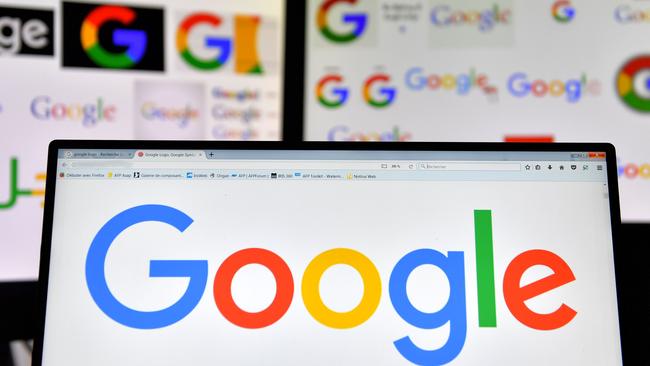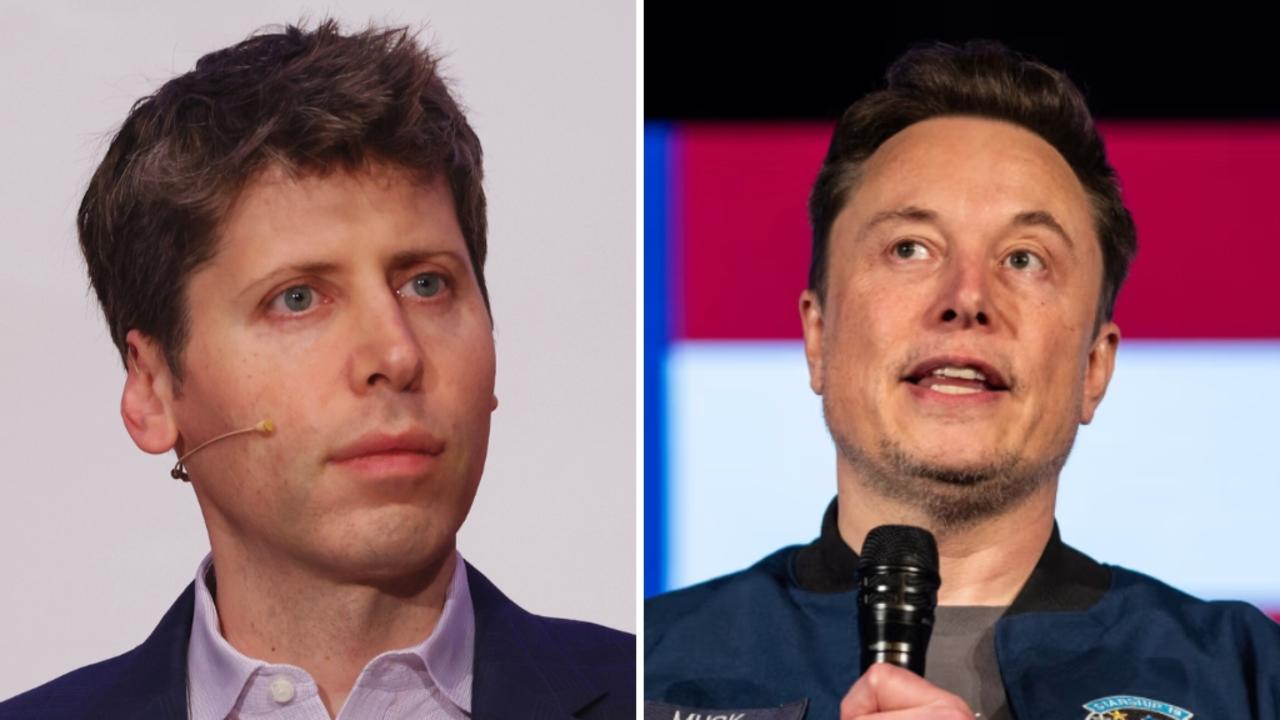Tech titans face ACCC call for crackdown
Australia’s competition regulator has called for a high-powered watchdog to rein in tech titans Google and Facebook.

Australia’s competition regulator has called for a high-powered watchdog with investigative authority to rein in the immense influence of tech titans Google and Facebook.
The Australian Competition & Consumer Commission has warned that the digital platforms — which are reaping 80 per cent of the growth in the nation’s $8 billion digital advertising market — could be engaging in “discriminatory conduct”.
Serious concerns have also been raised about the social media giants’ willingness to crack down on ad fraud and their use of algorithms to determine what content and advertising users see.
“There is a lack of transparency on the part of the digital platforms about these algorithms,’’ the ACCC’s preliminary report, to be released today, says.
Under a key preliminary recommendation, Google and Facebook would be forced to regularly hand over information and documents to a regulatory authority.
“The ACCC is considering recommending a regulatory authority to monitor and report on whether vertically integrated digital platforms are engaging in discriminatory conduct and favouring their own business interests above those of advertisers and other websites,” a section of the report, obtained by The Australian, says.
“The regulatory authority could have the power to investigate complaints, initiate its own investigations, make referrals to other government agencies and publish reports and make recommendations.
The ACCC also found that advertisers were “unable to verify for themselves whether advertisements on Google and Facebook were actually delivered to their targeted audience and had a limited ability to negotiate on price with the tech giants.
The report shows the ACCC is considering whether an ombudsman should be established to deal with complaints about digital platforms from consumers, advertisers, media companies and other business users of digital platforms.
It is also looking at whether an ombudsman could have a role in addressing concerns about advertisements containing false representations, such as fake claims involving celebrities.
“Google and Facebook could do more to address this issue,” the ACCC says in its report.
The report — the first of its kind globally to look at the impact of big technology on media and advertising markets — comes a year after the government first directed ACCC chairman Rod Sims to look at the effect that digital search engines and social media platforms have on competition in media and advertising services markets. The report revealed the significant extent of the market power Facebook and Google hold over Australians.
For every $100 spent by advertisers in Australia, $47 goes to Google, while $21 goes to Facebook. The $US700bn company Alphabet owns Google, along with YouTube, Gmail and Google Play, while Facebook, a $US395bn company, also owns WhatsApp and Instagram.
The government, in a joint release from Treasurer Josh Frydenberg, Attorney-General Christian Porter and Communications Minister Mitch Fifield, said the preliminary report highlighted several important issues related to news media and advertisers, including market power and potential regulatory adjustments.
“To make the most of opportunities that digital platforms bring, and to provide the right safeguards for the community, it is important that the regulatory environment remains fit-for-purpose,” the government said.
The report highlighted the significant change digital platforms had on advertising spending. It outlined that the spending on digital advertising had increased from less than $1bn in 2005 to almost $8bn in 2017. Over that same period, spending on print advertising had fallen from $5.7bn to $1.9bn. Digital advertising, as a share of all advertising, rose from 1 per cent in 2003 to 50 per cent in 2017, while print fell from more than 50 per cent to 12 per cent.
“The rise in digital advertising has been accompanied by the rise of Google and Facebook as the two largest suppliers of online advertising opportunities,” the ACCC says.
The ACCC’s report comes as European and US regulators become increasingly concerned at the power of digital platforms. In July, the European Union regulators hit Google with a record $6.8bn antitrust fine for using its Android mobile operating system to squeeze out rivals.
The Australian regulator’s report also flagged that several stakeholders had raised concerns about ad verification and ad fraud regarding the use of Google and Facebook’s advertising products.
“The crux of these complaints is that Google and Facebook are measuring the performance of their own advertising services while restricting the ability of advertisers to engage independent parties to do so.”
The issue of ad fraud involved third parties creating fraudulent advertising clicks, impressions and conversions to generate digital advertising revenue. The report highlighted that ad fraud was a $US7.2bn global crime and one that the World Federation of Advertisers had predicted would grow to more than $US50bn globally by 2025.
The ACCC said that though advertising bought through Google or Facebook could be subject to ad fraud, the tech giants might not have strong incentives to address the issue because they generated revenue whenever an ad was served, regardless of whether it was a human or bot that viewed it.
Both Google and Facebook have rejected claims their advertisements are not verifiable.
Advertisers also had limited ability to negotiate with Google and Facebook, the ACCC report said. The regulator said the global tech giants had the ability to charge advertisers more to provide search and display advertising services then they could if competition were effective.
There was also an issue with advertisers having a limited ability to seek dispute resolution of decisions by Facebook or Google.
The competition regulator is also considering if a regulatory authority should have the power to monitor and report on pricing. That issue was raised because it was unclear what proportion of revenue was being retained by intermediaries in display advertising. A final report will be issued next June.



